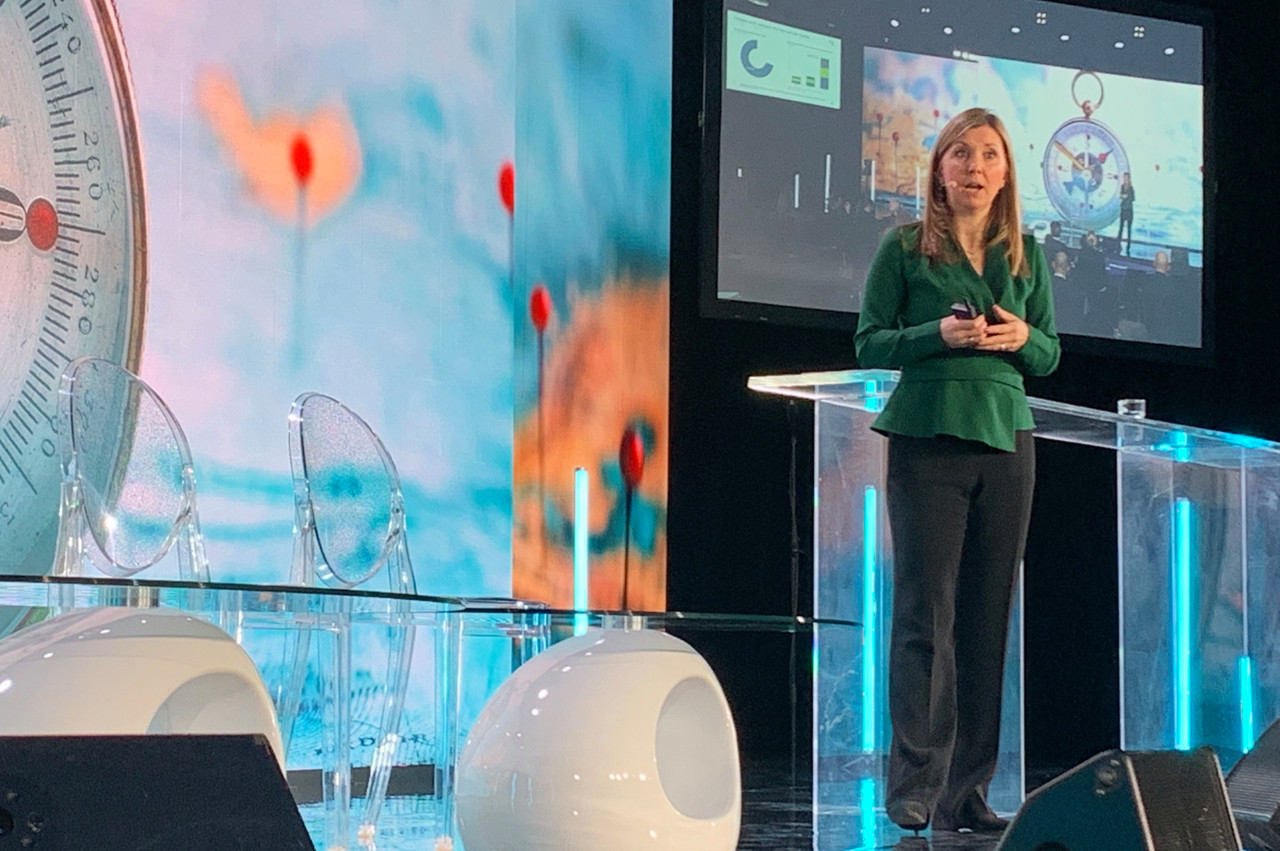The world has changed in leaps and bounds after unexpected shocks like covid-19, the war in Ukraine and the energy crisis that hit global markets. More recently, the banking sector was shaken by the and too. In this new world, where inflation is set to be higher and more volatile, “we have to change the way that we think about investing and certainly about the performance of different asset classes,” said Karen Ward at the Association of the Luxembourg Fund Industry conference on asset management on Tuesday.
Looking at the current developments in the EU banking sector, Ward said she was not worried about a repeat of the European sovereign debt crisis of 2008. “We shouldn’t use the last decade as a template for what will happen next,” explained the strategist. “To me, not only is the financial sector significantly more sound than it was back in 2008, but the real economy is also significantly sounder.” The sector is in a better shape both in terms of capital and liquidity, but also, “we haven’t had a real economy boom.” It has become difficult to push households and businesses to spend and invest, leading to “a decade of sluggishness”.
Alternatives provide shelter
However, the pandemic and energy crisis have taken EU out of its rut by reawakening inflation--something Ward considers not to be “bad news” for the economy and investors.
After a tough year for equities and bonds, “bonds are back,” and they are “doing what they are supposed to do again,” for the . Europe is also “in the early stages of a fiscal union to complement a monetary union”, which could lead to European assets--“which have been unloved for about a decade” --to come back into favour. It will, however, take time for confidence in European stocks to come back.
In the new--more volatile--reality Ward describes, asset managers will have to pay attention to alternative investments, which are likely “the only place we can go to for genuine inflation protection in our portfolio” and represent a critical component of an all-weather portfolio.
There is integrity behind sustainable investments providing confidence to investors that their money will be put to work in the way that they expect.
But also, asset managers will have to connect their investors to projects supporting the EU’s energy transition. “Sustainable investing has been turbocharged. We now have climate ambitions coupled with energy security ambitions,” she said. “Our job in our industry is to make sure that the capital meets those projects as quickly as possible. There is integrity behind sustainable investments providing confidence to investors that their money will be put to work in the way that they expect.”
Though the EU’s gas storage could still cover the next winter season’s demand, “we have to make sure that by the winter of 2025, we have our renewable plan in place,” as the EU has lost its biggest gas supplier, Russia. “Over the next five years, we must dramatically change how we source and use energy,” said Ward. Asset managers will have their role to play in making this happen.
